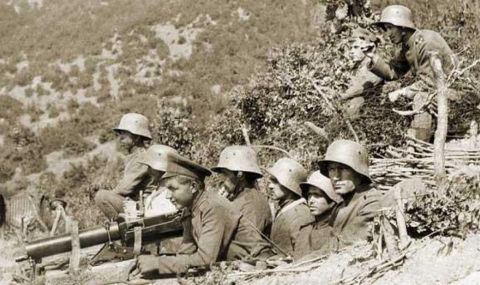At the eleventh hour of the eleventh day of the eleventh month of 1918, the First World War ended. Germany surrenders and signs an armistice with the Entente in a railroad car near Compiègne, France.
For the Entente, under the document is the signature of Marshal Ferdinand Foch, head of the Allied Command, and on the German side of Matthias Erzberger.
An armistice had been in talks since early November, when it was already clear in Berlin that the Central Powers had lost the war.
The beginning of 1918 gives hope to the Central Powers. On March 3, 1918 the Brest-Litovsk Peace Treaty was signed with Soviet Russia. This is a victory on the Eastern Front of the Central Powers. In the spring and summer of 1918 Germany threw its main forces into a series of offensives against Allied troops in northern France without achieving strategic success. In July, German troops were defeated in the Second Battle of the Marne, and in August suffered a heavy blow at Amiens. Reinforced by reinforcements arriving across the Atlantic from the USA, the Franco-British troops went into a general counter-offensive, which the Germans were unable to resist.
Germany's military situation is even more difficult after the Thessaloniki Armistice of September 29, when Bulgaria ends its resistance to the Agreement. Under these circumstances, the military leadership recommended that the Kaiser and the government negotiate an armistice with the Allies.
Bulgaria is forced to ask for an armistice after being abandoned by the Allies to hold off the enemy's push.
The situation forced German Commander-in-Chief Paul von Hindenburg to send a telegram to Foch on November 7 requesting a meeting. He is in a hurry to arrange the armistice, as revolution is simmering in Germany, and Munich, Berlin and other cities are on the verge of rebellion. The German delegation crossed the front line in five cars through the devastated areas of northern France to reach Compiègne, where Foch was waiting for them.
During the three-day negotiations, he appeared only twice - first to ask the Germans what their demands were, and finally to sign the treaty. In fact, there are no real negotiations, and only a few of the German demands have been accepted. They are even further pressed with the news that Kaiser Wilhelm II has abdicated. Erzberger dragged out the negotiations until the maximum previously agreed period of 72 hours, but finally on the morning of November 11 he signed and the truce became a fact.
